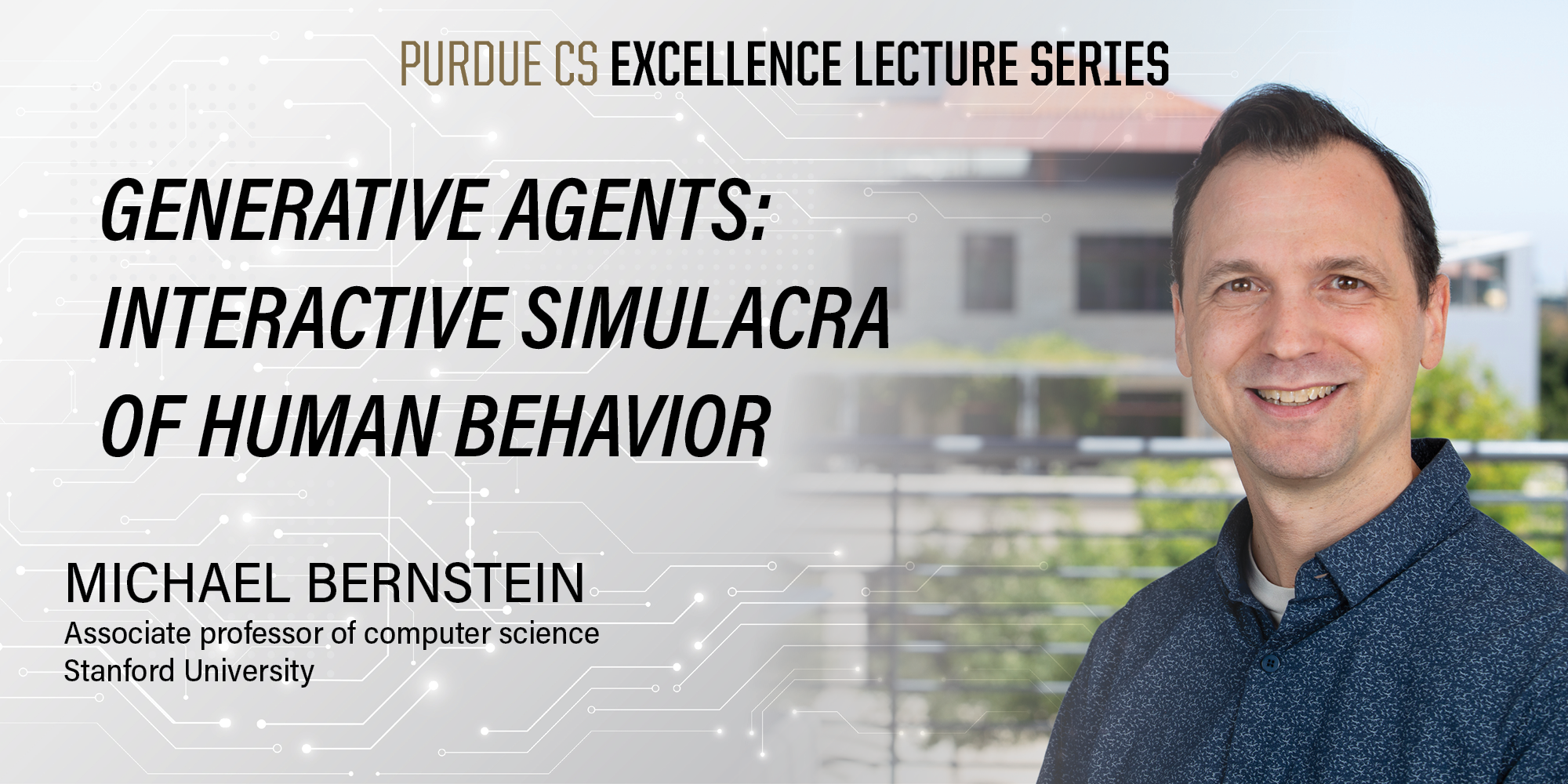Excellence Lecture Series

Professor Michael Bernstein
Monday, April 7, 2025
10:30 AM, reception to follow
DSAI 1069
Title
Generative Agents: Interactive Simulacra of Human Behavior
Abstract
Effective models of human attitudes and behavior can empower applications ranging from immersive environments to social policy simulation. However, traditional simulations have struggled to capture the complexity and contingency of human behavior. I argue that modern artificial intelligence models allow us to re-examine this limitation. I make my case through generative agents: computational software agents that simulate human behavior. By enabling generative agents to remember, reflect, and plan, we populate an interactive sandbox town of twenty-five agents inspired by The Sims. Then, by anchoring agents' memories in qualitative interviews of over 1,000 Americans, I describe how generative agents are able to replicate participants' responses on the General Social Survey 85% as accurately as participants replicate their own answers. Finally, I explore how these human behavioral models can help us design more effective online social spaces, understand the societal disagreement underlying modern AI models, and better embed societal values into our algorithms.
Bio
Michael Bernstein is an Associate Professor of Computer Science at Stanford University, where he is a Bass University Fellow, Senior Fellow at the Stanford Institute for Human-Centered Artificial Intelligence, and Interim Director of the Symbolic Systems Program. His research focuses on designing social, societal, and interactive technologies. His research has been reported in venues such as The New York Times, TED AI, and MIT Technology Review, and Michael himself has been recognized with an Alfred P. Sloan Fellowship, the UIST Lasting Impact Award, and the Computer History Museum's Patrick J. McGovern Tech for Humanity Prize. Michael holds a bachelor's degree in Symbolic Systems from Stanford University, as well as a master's degree and a Ph.D. in Computer Science from MIT.
Download the Flyer (PDF)